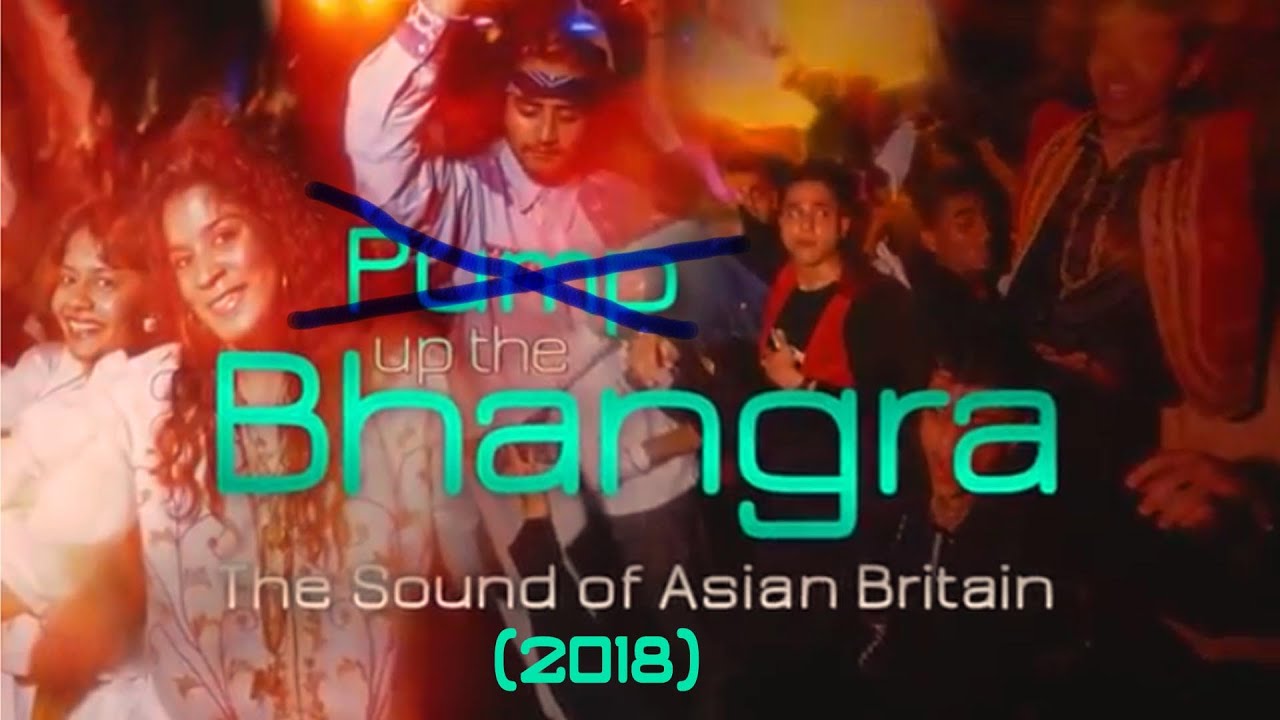The nature of the investigation could be deemed questionable.
British Asians have long contributed to British culture, and yet for a long time, there weren’t very many media representations.
Many that did exist proved to be stereotypical at best.
Documentaries themselves have also changed quite considerably in style, as well as audience tastes and preferences.
With the rise of internet access, we have seen further changes, as more can access and interact directly with publishers.
As such there are an array of documentaries on the British Asian population.
These are made by a wide range of production companies, whether tied to traditional broadcasters or not.
This article shall enlighten you on five contemporary documentaries about the British Asian experience.
Being British Asian: Who Do We Think We Are? (2018)

Being British Asian: Who Do We Think We Are? is a 2018 documentary from BBC Asian Network.
It was produced as part of a wider scheme for The Big British Asian Summer in the same year.
The Big British Asian Summer was produced to celebrate and discuss British Asian “cultural and artistic” contributions to the UK.
In this piece, radio presenters Mobeen Azhar and Nomia Iqbal take a deep dive into a range of issues affecting British Asians.
In a special debate format, they discuss issues such as identity, religion, relationships and politics.
British Asians are a wide group, being 9.3% of the UK population, according to the 2021 UK Census.
This extraordinary number indicates that British Asians will have a wide variety of views and lifestyles.
There may be cultural overlaps, but there are many blends of British Asian. The audience as such reflects and gives great insight into this.
One such insight given is how many of the audience identify differently.
For some, their Britishness comes first, for others their Asian identity.
Even beyond these, the audience has great complexity in the way that they identify.
Many British Asians also feel compelled to reject some aspects of Asian culture.
This documentary is a treasure trove of insight and is available to watch on YouTube.
Pump Up the Bhangra: The Sound of Asian Britain (2018)

This documentary, produced by BBC Scotland, takes a retrospective look at the rise of Bhangra.
Bhangra is more than just a fusion of hip-hop and Punjabi folk music.
It also encompasses a British Asian youth culture.
This was especially true in the 1980s when scenes popped up in major cities all over the UK.
Hosted by DJ Bobby Friction, the documentary shows how Bhangra helped British Asians feel a sense of belonging.
It is hard to understate just how much Bhangra helped to define the current British Asian sound.
Many younger British Asians feel a great attraction to old and new tunes alike.
With many forms of sub-genres, Bhangra brings a great sense of versatility to its sound.
Bobby Friction defines what makes a Bhangra track wonderful with one “[being] Bhangra if you can actually do the dance to it.”
Bhangra also shows the strength of Punjabi influence in the UK, one which goes beyond borders in South Asia itself.
This documentary dives deep into Bhangra’s origins, and its changes over the decades.
MATANGI/MAYA/M.I.A. (2018)

Continuing with the music theme, this documentary is about the British-Tamil rapper M.I.A.
Directed by Steven Loveridge, this documentary film won an award from the Sundance Film Festival.
It is a very detailed profile of the artist, which uses videos from the prior 22 years.
M.I.A, whose real name is Mathangi Arulpragasam, was born in the UK.
At the age of 6 months, she and her family went to Sri Lanka and then came from Sri Lanka to London when she was 11 years old.
This later return was due to the Sri Lankan Civil War, events that significantly affected the artists’ future.
She and her family escaped the conflict as refugees. Her childhood gets much attention in this documentary.
M.I.A is a significant rapper, who has blended rap, and electronic with a whole range of other genres.
She has also generated significant controversy, with political themes and activism being central to her music.
Her father was involved in the founding of the Tamil resistance in the Civil War, and as such this has influenced M.I.A.
She has even used tiger imagery relating to Tamil independence within her work.
Sri Lankan Tamils are a significant group in Sri Lanka.
In the UK, British Tamils feel further complications with their British identities.
This documentary navigates all the complexities surrounding her and is available to watch online.
The Trojan Horse Affair (2021)
 This fiery audio documentary in podcast form, from the New York Times, navigates difficult circumstances in an investigation for the truth.
This fiery audio documentary in podcast form, from the New York Times, navigates difficult circumstances in an investigation for the truth.
Hamza Syed and Brian Reed take a deep dive into the Trojan Horse Affair.
It was a scandal that started in late 2013 and gained media attention in March 2014.
There was a letter that reached the desk of the Birmingham City Council.
It implicated a few schools and individuals in a conspiracy dubbed ‘Operation Trojan Horse’.
This alleged document was made to look like secret communications between religious extremists in collaboration.
The scandal had the effect of ruining the reputations of schools and individuals in leadership positions.
This was because the letter implicated many leadership positions and staff at certain schools in Birmingham.
Many British Asian lives were ruined by this scandal, especially those of pupils, whose school governance was changed dramatically.
But Hamza Syed noticed a certain quiet from authorities and media on the events.
From the start, the nature of the investigation could be deemed questionable.
The letter itself seemed to be greatly flawed, yet it was treated by the Education Secretary as serious enough to inform policy decisions.
There are also other aspects the documentary dives into at length.
In a post-War on Terror context, it is important to take a step back and understand how British Asian lives were made difficult.
This is where events like the Trojan Horse Affair come into play, and this extremely high-quality podcast navigates Hamza’s struggles as a South Asian journalist.
One such example is in dealing with the lack of trust in media from British South Asians, especially after the scandal had broken out.
In some sense, this piece seeks to diffuse that, as it shows Hamza and Brian’s process of investigating the events.
This podcast is available on every major podcast app.
Being British Bangladeshi (2021)
 Too often whenever South Asia is uttered, the presumption is that it is either referring to India or Pakistan.
Too often whenever South Asia is uttered, the presumption is that it is either referring to India or Pakistan.
But South Asia is so much more than these two countries.
South Asia also encompasses Bangladesh, Bhutan, Sri Lanka, Maldives and Nepal.
Some maps and groupings also include Afghanistan. There are many more groups within even these countries – cultural and ethnic.
One country, in particular, is often less thought of, a relatively small-sized one.
Despite that, it is the 8th most populated country. As of 2022, Bangladesh’s population is 169,828,911.
Bangladesh has had a large global cultural impact and yet is likely known by many for the ‘Made in Bangladesh’ tag on fast fashion clothing.
There is also a sizable British-Bangladeshi presence in the UK, with over 600,000 as recorded in the last UK Census in 2021.
Being British Bangladeshi by comedian Ali Shahalom, watches him go through his heritage to see what it means to be British and Bangladeshi.
This documentary, produced by BBC Three, has a runtime of 25 minutes.
The significance of British-Bangladeshis must not be taken for granted.
One surprising statistic mentioned in the documentary is that “80% of all Indian restaurants in the UK are owned by Bangladeshis.”
Places such as the East End and Brick Lane in London became synonymous with Bangladeshis.
We also see contributions to art and culture, as well as a sitting MP in 2021, Rushanara Ali.
In the backdrop of the 50th anniversary of Bangladesh, discover the roles of many British-Bangladeshis in the UK.
All of the documentaries shown showcase a wide diversity in the contemporary British Asian experience.
They all showcase the positives of the British Asian experience. But they do not spend any time shying away from the struggles and issues.
British Asian does not merely mean Indian or Pakistani, and it is very much time for this to be accepted.
British Asians are a collective of a wide variety of cultures, languages and experiences.
They continue to make a unique mark on British culture.






























































